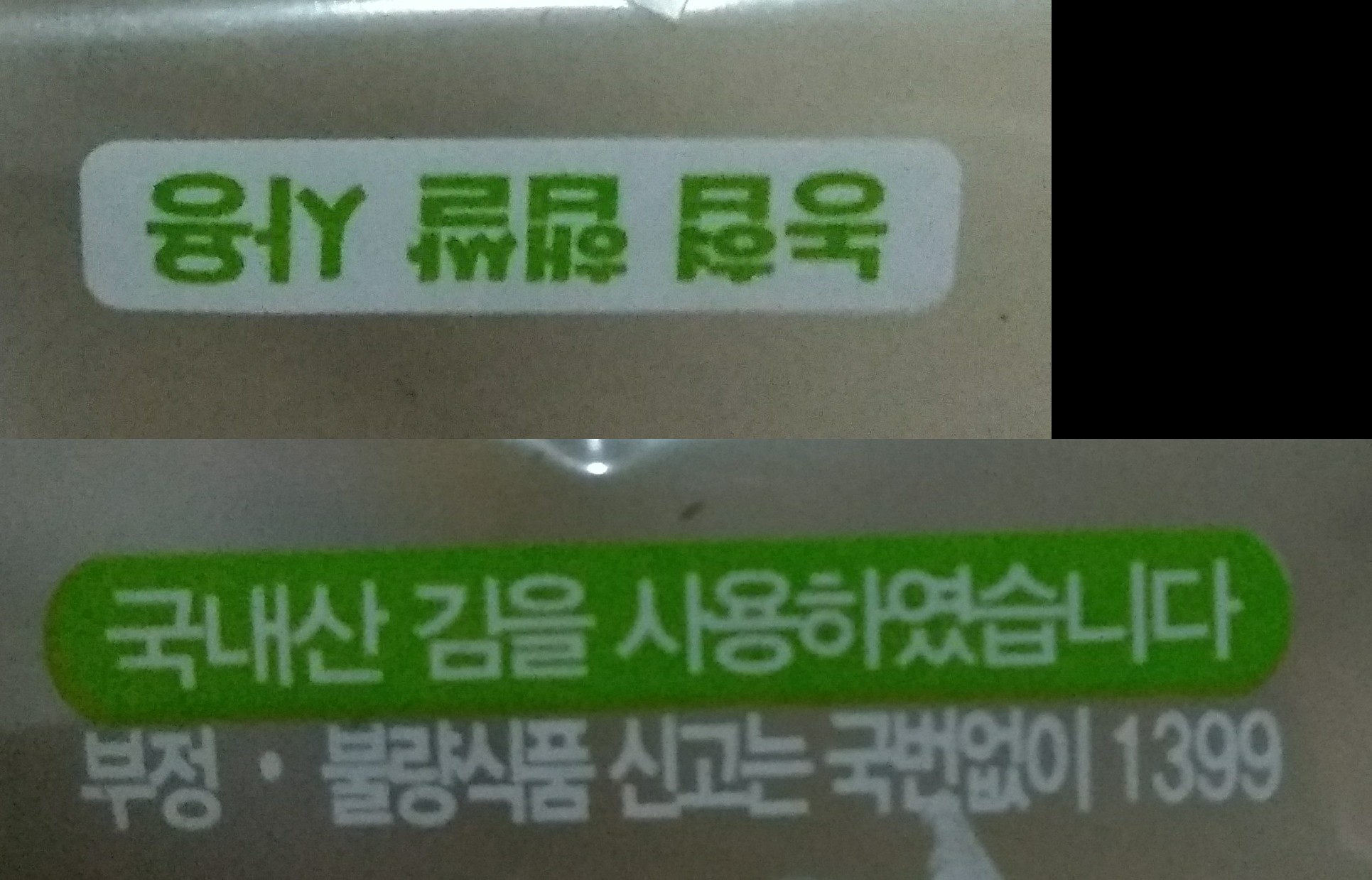
Hi can somebody translate accurately the meaning of this?
Please put the format in Original Korean Text and word by word translation and then the corresponding phrase translation. Regards

Hi can somebody translate accurately the meaning of this?
Please put the format in Original Korean Text and word by word translation and then the corresponding phrase translation. Regards
From google translate:
농협 햅쌀 사용
Nonghyup New Year rice
농협 - 농업협동조합 - farmer's association
햅쌀 - current year's newly harvested rice
사용 - used in production of this product
-> Nonghyup's newly harvested rice was used in this product
국내산 김을 사용하였습니다
Domestic sea weed was used
국내산 - domestic product
김 - sea weed
사용하였습니다 - was used
-> Domestic sea weed was used (in this product)
부정.불량식품 신고는 국번없이 1399
1399 without food registration number
부정 - abnormal (defective)
불량 - bad/defective
식품 - food product
신고 - report
국번없이 - excluding national area code
1399 - one three nine nine (telephone number)
-> call 1399 to report defective product